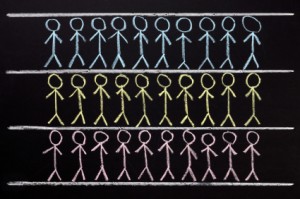Brands may support anti-racism movement, but advertising still needs to decolonise
|
Carl W Jones, University of Westminster
Brands such as Nike and Adidas to PG Tips and Space NK have been expressing solidarity with the Black Lives Matter movement by issuing statements and adverts of support – from Nike playing with their memorable tagline of “Just Do It” by asking consumers “for once, Don’t Do It” to the #Solidaritea hashtag taken up by many tea brands. Many of these messages have been accompanied by promises to take a hard look at each company’s history and current working practises to see what changes can be made to address structural racism. The idea that we need to decolonise various areas of society is finally growing. But the idea itself is, of course, nothing new. Calls and attempts to decolonise curriculums, public transport systems, museum collections, healthcare systems and so on have been around for a while, but finally many appear to be taking it a bit more seriously.


